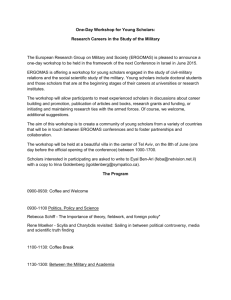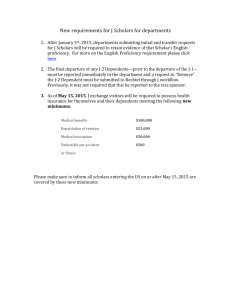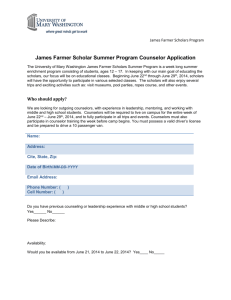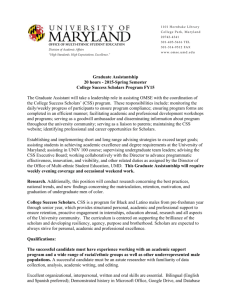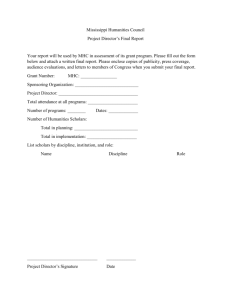Young Scholars in Fairfax County Public Schools (FCPS)
advertisement
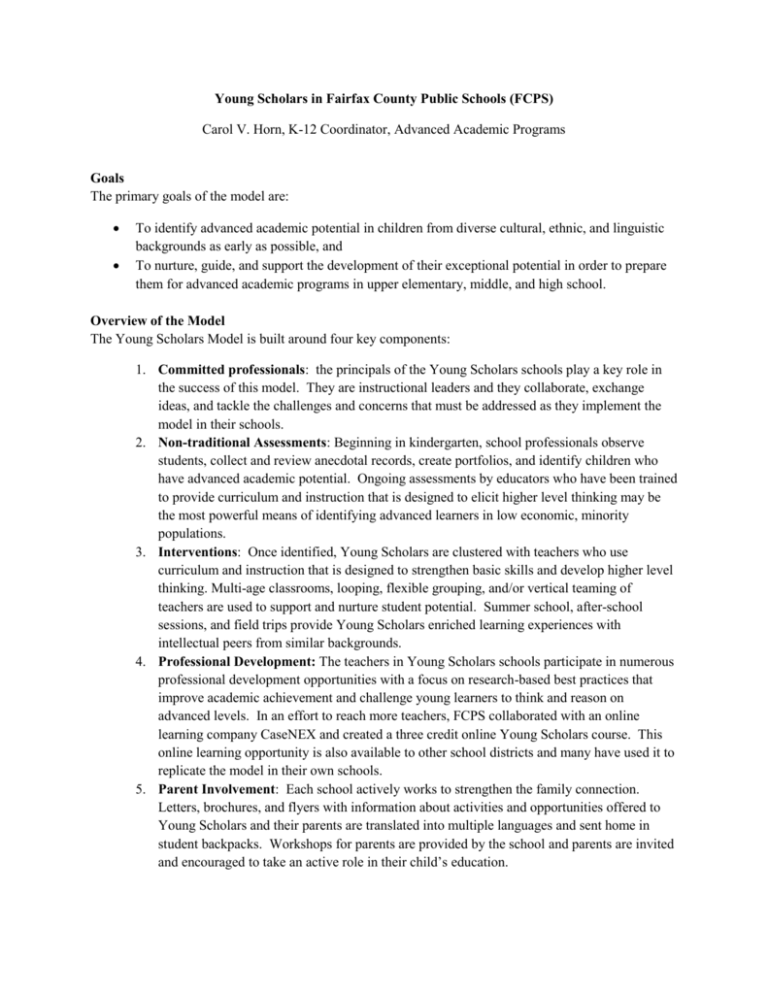
Young Scholars in Fairfax County Public Schools (FCPS) Carol V. Horn, K-12 Coordinator, Advanced Academic Programs Goals The primary goals of the model are: To identify advanced academic potential in children from diverse cultural, ethnic, and linguistic backgrounds as early as possible, and To nurture, guide, and support the development of their exceptional potential in order to prepare them for advanced academic programs in upper elementary, middle, and high school. Overview of the Model The Young Scholars Model is built around four key components: 1. Committed professionals: the principals of the Young Scholars schools play a key role in the success of this model. They are instructional leaders and they collaborate, exchange ideas, and tackle the challenges and concerns that must be addressed as they implement the model in their schools. 2. Non-traditional Assessments: Beginning in kindergarten, school professionals observe students, collect and review anecdotal records, create portfolios, and identify children who have advanced academic potential. Ongoing assessments by educators who have been trained to provide curriculum and instruction that is designed to elicit higher level thinking may be the most powerful means of identifying advanced learners in low economic, minority populations. 3. Interventions: Once identified, Young Scholars are clustered with teachers who use curriculum and instruction that is designed to strengthen basic skills and develop higher level thinking. Multi-age classrooms, looping, flexible grouping, and/or vertical teaming of teachers are used to support and nurture student potential. Summer school, after-school sessions, and field trips provide Young Scholars enriched learning experiences with intellectual peers from similar backgrounds. 4. Professional Development: The teachers in Young Scholars schools participate in numerous professional development opportunities with a focus on research-based best practices that improve academic achievement and challenge young learners to think and reason on advanced levels. In an effort to reach more teachers, FCPS collaborated with an online learning company CaseNEX and created a three credit online Young Scholars course. This online learning opportunity is also available to other school districts and many have used it to replicate the model in their own schools. 5. Parent Involvement: Each school actively works to strengthen the family connection. Letters, brochures, and flyers with information about activities and opportunities offered to Young Scholars and their parents are translated into multiple languages and sent home in student backpacks. Workshops for parents are provided by the school and parents are invited and encouraged to take an active role in their child’s education. Evidence of Success Once identified, each Young Scholar is assigned a special YS code in the district’s student information system. This code allows the district to assess the participation and performance of Young Scholars over time in order to determine whether or not they are identified for advanced academic services, the level of service, the courses that they take in middle and high school, and their grades. Since Young Scholars may be identified as early as kindergarten, the code has provided important longitudinal research on the success and impact of the model over time. A Final Note Finding and nurturing Young Scholars in order to ensure their academic success is an enormous undertaking that requires a school-wide commitment. Schools can be powerful agents of change when they provide a context in which students are able to develop potential that might not be realized without the opportunities that a school setting can provide. The Young Scholars model embraces expanded beliefs about the nature of intelligence and focuses on measures of a child’s ability to think, reason, and problem-solve that cross cultural, ethnic, and linguistic boundaries. For more information about Young Scholars, please contact Dr. Carol V. Horn, K-12 coordinator, Advanced Academic Programs, Fairfax County Public Schools at carol.horn@fcps.edu. You may also want to explore the three credit Young Scholars online course that FCPS developed in partnership with CaseNEX at http://www.casenex.com/casenet/index.html. Leadership of principals and collaboration among teachers Non-traditional Assessments Interventions, extensions, enrichment Ongoing professional development for teachers and parent involvement


